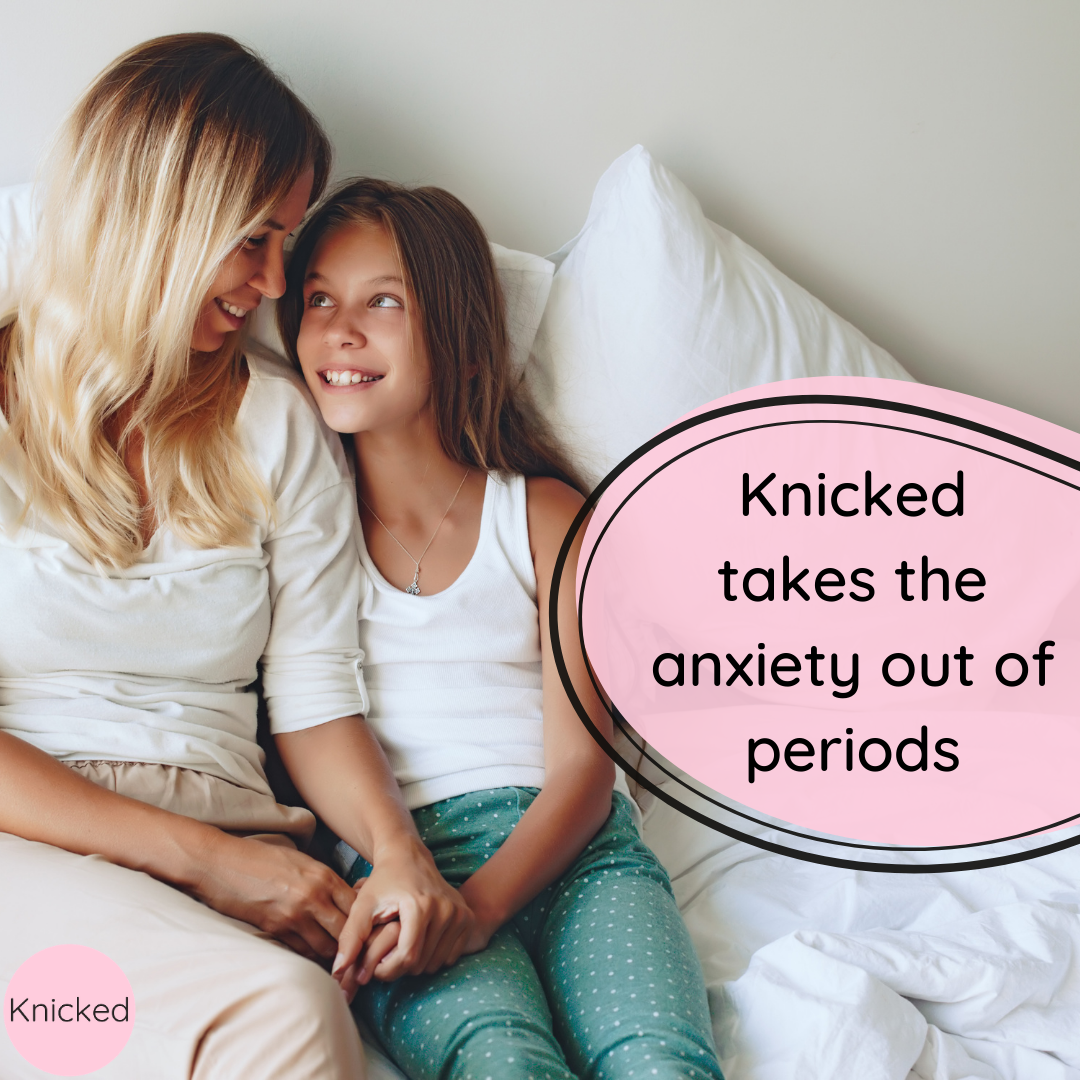
PUBERTY can be a tricky topic to tackle with your kids, and knowing the right time to go there is a big question we as parents and caregivers often struggle with. Am I sharing too soon, are they too young to know, how much do they need to know, how much do their friends know, what are their friends' parents telling them, what's school telling them?!!! ETC ETC ETC!
We know puberty is such an important conversation to have with our kids ... and then we need to take it a step further, and remember that our kids need to know about puberty for the opposite sex, also! So, if you've got daughters, it's important to be telling them about changes that happen for boys, and just as important, and so often forgetten, it's super important that we have the conversations with our sons about puberty, and in particular PERIODS for girls!
Discuss periods with your sons because:
- It makes the topic less taboo and less awkward.
- It helps them understand girls more, and what they go through every month.
- It makes them understand that the changes happening with their own bodies are normal, too, and a part of life.
Watch this YouTube video below showing parents explaining periods to their kids ... it's pretty amusing, and we loved some of the questions the kids ask!
So, we know WHY we need to talk with our sons about periods, so the next question is HOW to we start this chat? Here are some great ideas for HOW to explain this very important topic with your tween sons:
A.) Be direct and to the point
Putting time aside to sit down with your sons and have conversations about periods is super important, so use that time wisely and be direct and to the point! Tell them what's relevant try and limit the confusion. Be open to their questioning. As per the video above, have some products on hand (remember the KNICKED period undies, too!) so they get a better grasp of what it's all about.
B.) Find a way to relate periods to the male's version of puberty
It's obvious that both men and women go through very different versions of puberty. While males grow an Adam's apple, and their voices change, it should be properly explained to them that females, on the other hand, experience a period instead. The biggest difference is that females have a menstrual cycle every month, while males only grow their Adam's apple once.
C.) Answer whatever questions they may have
Kids can be curious so be ready for some pretty out-there questions that you may not be expecting! (e.g. the SOUP question the boy asked in the video above!)
As boys don't get to experience a period, it can be a strange topic for them, so expect that they're going to ask you some well-thought-out and considered questions, but also some funny questions, too. If you're unsure what to answer, just let them know that you'll get back to them on that, rather than telling something that's not entirely true. Again, idea number 1 - be direct and to the point, and be honest!
D.) Have props!
Share pictures, videos, or even draw the process out for them, if you can. Periods and menstruation are a big and somewhat complicated topic for a kid to grasp, so using props can really help! Tomato sauce poured onto a pair of Knicked period undies can be really helpful, and it's also a great opportunity for them to understand about landfill, and how reusable options such as Knicked period undies stop all the tonnes of sanitary waste creating havoc for our planet. 
Talk to your sons:
- Explain that females go through monthly menstrual cycles, and they're a huge part of their life, averaging 40 years!
- Share that some females can experience irritability, mood swings, cramps, and more due to having periods ... but some people don't have any side effects at all.
- Help them understand that periods are a part of puberty and are not something to make a girl feel ashamed of or anxious.
- Tell them about the different menstrual products out there, particularly how period knickers work, so they know that it's all just part of a girls journey.
What to expect during puberty:
The following is from Parenting Children Through Puberty, and could be helpful if you're looking for help with the information you need to be sharing.
Puberty changes are physical, sexual, social and emotional and it starts when changes in your child’s brain cause sex hormones to be released in the:
- ovaries (usually around age 10 or 11, but can range from 8 to 13 years)
- testes (usually around age 11 to 13, but can range from 9 to 14 years).
You can’t predict how long your young person will go through puberty. It may be anywhere from 18 months up to 5 years. Genetic, nutritional and social factors determine when puberty starts and for how long it runs.
During puberty, most children will experience:
- oily skin (acne is possible)
- oily hair, possibly requiring frequent washing
- increased perspiration and body odour (frequent showering and deodorant help)
- a growth spurt (of around 11 cm a year in girls and up to 13 cm a year in boys). Teens continue to grow about 1-2 cm a year after this main growth spurt. Some body parts (such as head and hands) may grow faster than limbs and torso. The body eventually evens out, so make sure to let your kids know that everything going on in their body, is NORMAL!
Girls will experience:
- breast development and possible tenderness
- a change in their figure, including widening of the hips
- growth of pubic and underarm hair
- the start of menstruation – periods may be irregular at first. Some discomfort, like headaches and stomach cramps, is normal but see your doctor if you have concerns
- a clear or whitish vaginal discharge – this may occur before periods. See your doctor if your daughter experiences itching, pain or strong odour.
Boys will experience:
- growth of the penis and testes (testicles). Sometimes the growth of the testes is uneven (that is, one testis grows faster than the other). This is not something to worry about
- growth of pubic, underarm and facial hair
- the start of testosterone production, which stimulates the testes to produce sperm
- the start of erections and ejaculation
- growth of the larynx or voice box – the voice ‘breaks’ and eventually deepens. Voice variations are normal and will settle in time.
Summary:
Periods are not bad, nor bad luck, they're just nature's way of preparing females for the journey to womanhood. Topics around puberty, menstruation and periods shouldn't be awkward ... make sure that the information your kids are getting are from YOU first, not from their friends who may not be sharing a very accurate version!
We need to make sure that PERIODS are a "normal" word in our homes, so we can help reduce the stigma around this topic.
For more blogs like this, make sure that you are subscribed to our mailing list to be the first to know of new updates around periods, sustainability and LIFE! Subscribe here!








